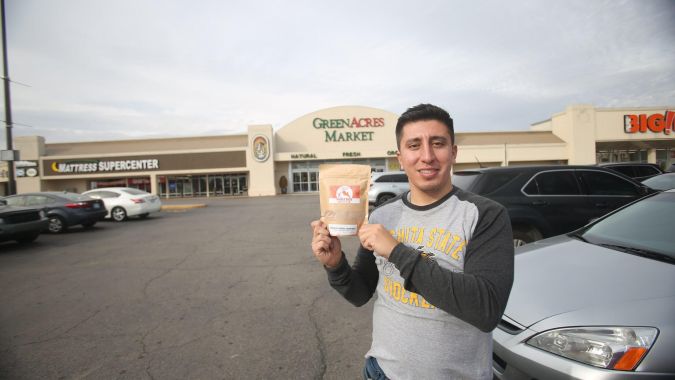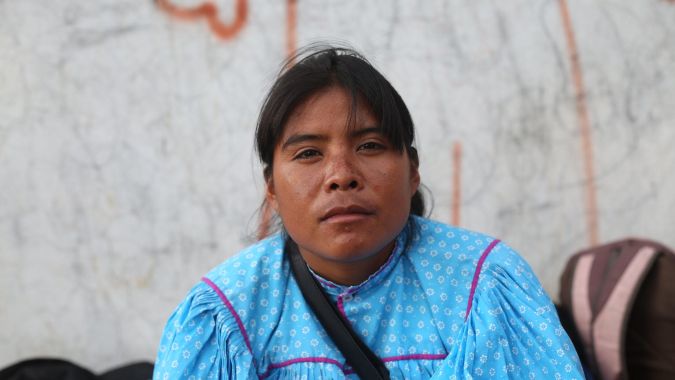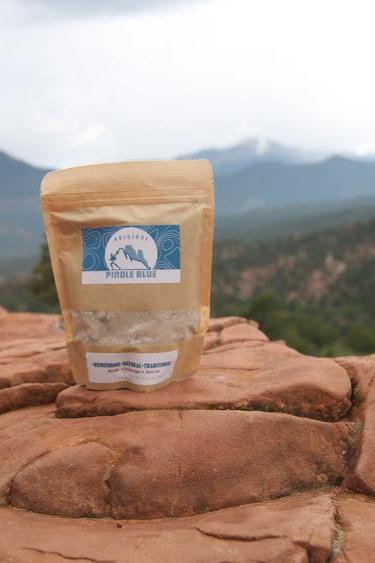While health-focused sites are just starting to embrace pinole – with some publications saying it could be the next quinoa – those who grew up consuming the fine ground maize mixture, have always known of the health benefits of the cornmeal, which dates back to pre-Columbian times.
From his father, Eddie Sandoval learned how beverages made with pinole came in handy in sweltering weather. “My dad does road construction and he says that that’s what’s helped him the most when it’s really hot outside,” he tells me in a phone interview. “It helps him handle the heat,” his hunger and boosts his energy. Because his parents are from Chihuahua – near where the Tarahumara Indigenous group lives – he also knew from a young age how important pinole, which can also be called pinol or pinolillo, was to this community.
After years of wondering why his family always had to bring pinole back to their small town in central Kansas – the mixture was more readily available in other places, such as Miami, where there is a sizable Central American population that consumes it – he decided to sell it to grocery stores and restaurants as a college student at Wichita State University. He soon saw there was demand for the product.

“I started it in my garage over Christmas break [in late 2016],” he says. By January 2017, he hit up the Mexican stores in the area and sold the product in brown paper bags. “I sold 300 pounds in a couple of months, and that’s when I took it more serious.”

That same year, Sandoval entered his school’s Shocker New Venture Competition, where he placed first. By October, he officially launched Pinole Blue, and while the brand has steadily grown since then – Sandoval graduated from his garage to a facility in Wichita, where his team roasts and grinds everything – he had a lot of learning to do.
“I’ve had to learn everything,” he adds. “I’m a finance major. Here I am having to learn about nutrition, about all the government laws,” as well as about the food industry and customer service.
One area he at least had an advantage in was his knowledge of the product. Sandoval can easily rattle off the history of the product and provide other interesting facts and anecdotes (“[People] have straight up told me, ‘when I crossed the border and came to this country, I literally came with a bag of pinole and a jug of water. That’s what helped.'”) But he’s also interested in how the product is consumed in other parts of Latin America (he asked me during our chat how my Nicaraguan mother prepared pinolillo). He’s also particularly interested in discussing the Tarahumara community’s ties to pinole, and it’s one reason he has decided to give a percentage of sales to this group.


“I always [saw] how Tarahumara were treated, especially in that area, and how they were suffering of hunger and everything,” he says. “And I always told myself I wanted to do something.”
One way is trying to help them get the resources they need, but he is also a sponsor for Lorena Ramírez, a long distance runner who has built a reputation for her speed. In the past, Ramírez has spoken out about the lack of support from the government when it comes to international races. As a matter of fact, when Mexican President Andrés Manuel López Obrador won the election, she called on him to do things differently. “With the new president, I’d love more support to travel and run,” she says. “I’d want more resources.”
Pinole Blue offers nine different products. Purchase and learn more about the brand here.




